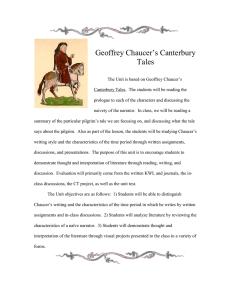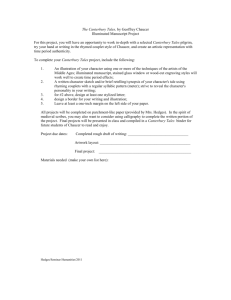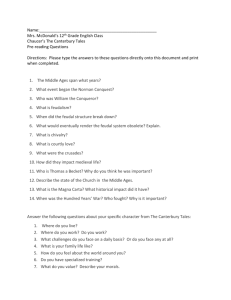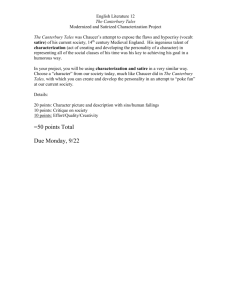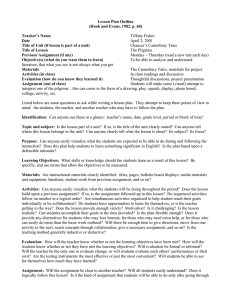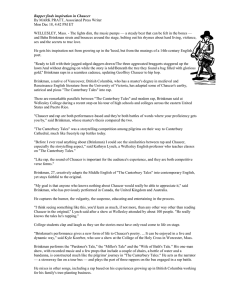Miller’s portrait from the Ellesmere MS
advertisement
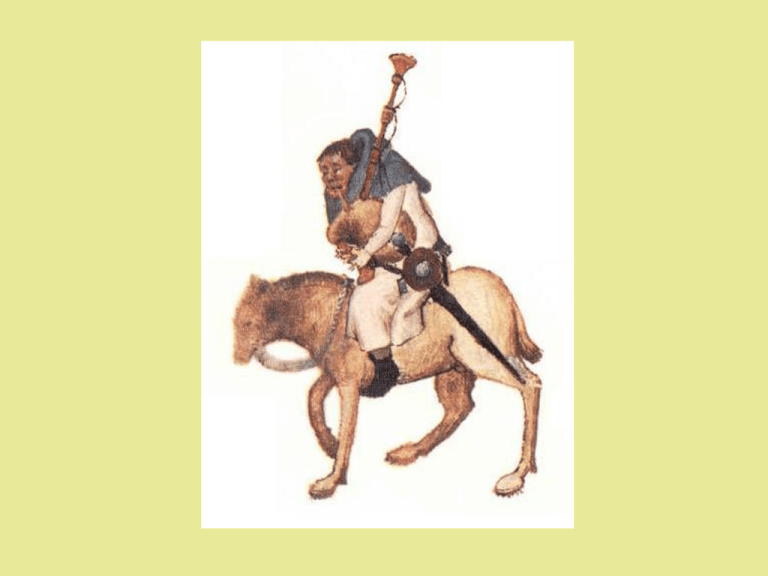
The “Taymouth” Hours (14th C.; BL MS Yates Thompson 13, f. 177) reproduced from D.W. Robertson, A Preface to Chaucer from Neil Gaiman’s The Sandman The attorney asked Hoffman whether she thought the term was "a filthy and vile word." Hoffman replied it was a "swear word" and that its meaning depended on the circumstances in which it was used, according to a copy of the deposition released by the school. Asked if it could ever be used in a polite context, Hoffman replied: "Yes, I've actually heard it used as a term of endearment." University spokeswoman Michele Ames said Hoffman knows the word has "negative connotations" but it did not in its original use centuries ago. "Because she is a medieval scholar, she is also aware of the long history of the word dating back to at least Chaucer," Ames said. English writer Geoffrey Chaucer lived in the late 1300s and used the word in "The Canterbury Tales." "She was in an extremely adversarial deposition with attorneys who have brought federal litigation seeking monetary damages from the university, Ames said in a second statement. "In an effort to not allow the attorney to dictate to her a definition of the word, she defined it herself as a swear word. She was then asked if she was aware of a non-negative definition. She replied from her scholar’s knowledge. " (2004 testimony by Elizabeth Hoffman, president of the University of Colorado, about the Title IX lawsuit of placekicker Katy Hnida) Baba Brinkman in concert Robert Siegel: "Warning: Lyrics in the following story contain adult themes, including but not limited to greed, prostitution, adultery, violence and naughty bits of the human body. They may offend some people, as they have for 600 years." “All Things Considered,” NPR, August 2005 Michelle Norris: "The thing is "The Canterbury Tales" are not only important works of literature. They're also lusty, scatological and, some would say, pornographic. So Brinkman was forced to clean them up for the classroom. But, still, the bawdy ballads cannot be easily disguised." “All Things Considered,” NPR, August 2005 Melissa Block : “Matt Virkstis of Royalton, Vermont, writes, `I listened with a combination of fascination and horror to your story about Baba Brinkman's hiphop translation of Chaucer's "Canterbury Tales." My thoughts turned to my eminent Chaucer professor who taught me as an undergraduate. I imagined him hearing your story, his mouth agape, spilling his coffee on his tie while scrambling to his computer to write you an e-mail proclaiming that he'd rather suffer the painful indignity inflicted upon Nicholas in the "Miller's Tale" than listen to another moment of Brinkman's efforts.' “Well, you're going to have to go to your library or your computer to find out what happened to poor Nicholas. It's a bit too graphic for this radio program.” “All Things Considered,” NPR, August 2005 Chaucer portrait in MS Harley 4866 (Hoccleve’s Regement of Princes, c.1412)


